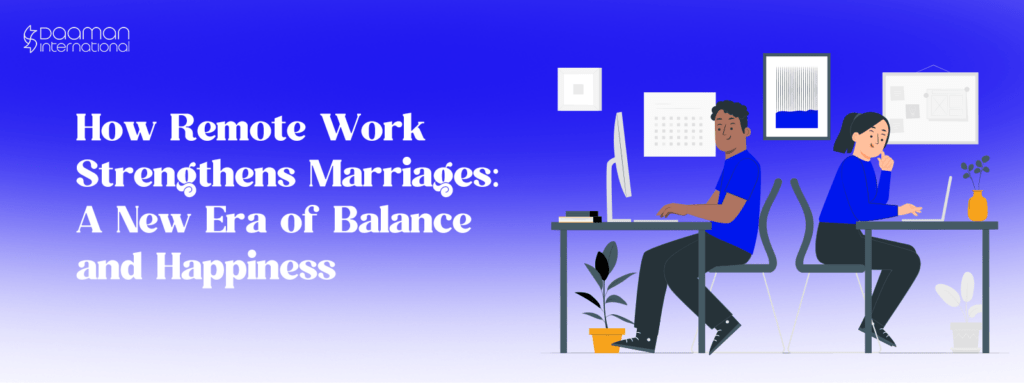How Remote Work Strengthens Marriages: A New Era of Balance and Happiness
The shift toward remote work has changed the way people approach their careers, but for married couples, it has brought an even greater transformation—one that fosters equality, strengthens relationships, and improves overall happiness. Working from home allows couples to share responsibilities, support each other’s ambitions, and spend more quality time together, creating a balanced and fulfilling life. 1. Equal Partnership in Parenting One of the most significant advantages of remote work for married couples is the opportunity to share child-rearing responsibilities more equally. Traditionally, one partner—often the mother—takes on the bulk of childcare duties, which can lead to exhaustion and resentment. However, when both partners work remotely, they can split responsibilities such as feeding, helping with schoolwork, and playtime. This equal involvement in parenting helps both partners bond with their children and removes the pressure from one individual. Children, in turn, benefit from the presence of both parents, fostering a healthier family dynamic. 2. Shared Household Responsibilities Beyond parenting, remote work allows couples to divide household chores more fairly. Without long commutes and strict office hours, both partners can take turns with cooking, cleaning, and grocery shopping. This balance reduces stress and prevents the burden from falling solely on one person, ultimately eliminating conflicts over housework—a common issue in many marriages. When couples work from home, they also develop a greater appreciation for each other’s efforts. Seeing the daily challenges each partner faces creates a mutual understanding and respect, leading to a stronger relationship. 3. More Quality Time Together One of the biggest struggles for working couples has always been the lack of time together. Between office hours, commuting, and other obligations, couples often find themselves with little energy left for each other. Remote work changes this by making quality time a daily reality. Lunch breaks become shared meals, coffee breaks turn into moments of connection, and there’s more flexibility to plan activities together. Whether it’s a quick walk, cooking dinner together, or simply talking, these small moments strengthen emotional intimacy and keep the relationship alive. 4. Financial Stability with Dual Incomes When both partners work remotely, they save money on commuting, office attire, and eating out, allowing for better financial stability. Couples can also diversify their income streams, with one person focusing on a full-time remote job while the other explores freelancing or entrepreneurship. The financial flexibility from remote work also enables couples to invest in experiences rather than just expenses. More vacations, weekend getaways, and home improvements become possible, leading to a more fulfilling lifestyle. 5. Reduced Stress and Improved Work-Life Balance Remote work eliminates the stress of daily commuting and office politics, making life less overwhelming for both partners. A relaxed home environment allows for better mental health, improved focus, and increased job satisfaction. With less stress, couples are less likely to argue over work-related exhaustion, deadlines, and time constraints. Instead, they can support each other emotionally and professionally, helping each other succeed without sacrificing their personal lives. For married couples, remote work is more than just a professional shift—it’s a lifestyle upgrade. Equal child-rearing, shared responsibilities, financial stability, and more quality time together all contribute to a happier, healthier relationship. As remote work continues to rise, so does the opportunity for couples to build stronger partnerships and lead more fulfilling lives together. Would you consider remote work for a better work-life balance with your spouse? Let us know!
How Remote Work Strengthens Marriages: A New Era of Balance and Happiness Read More »











